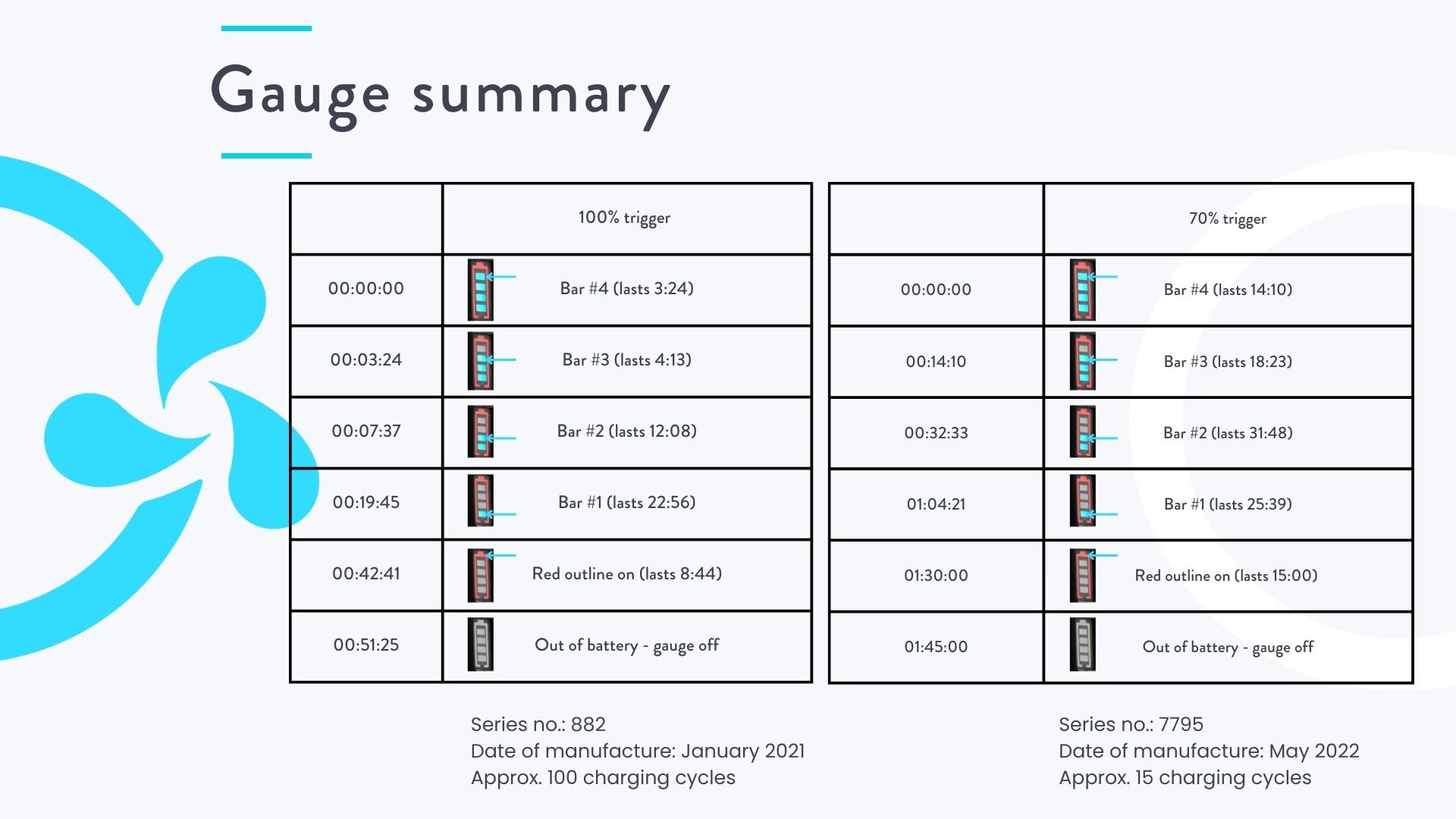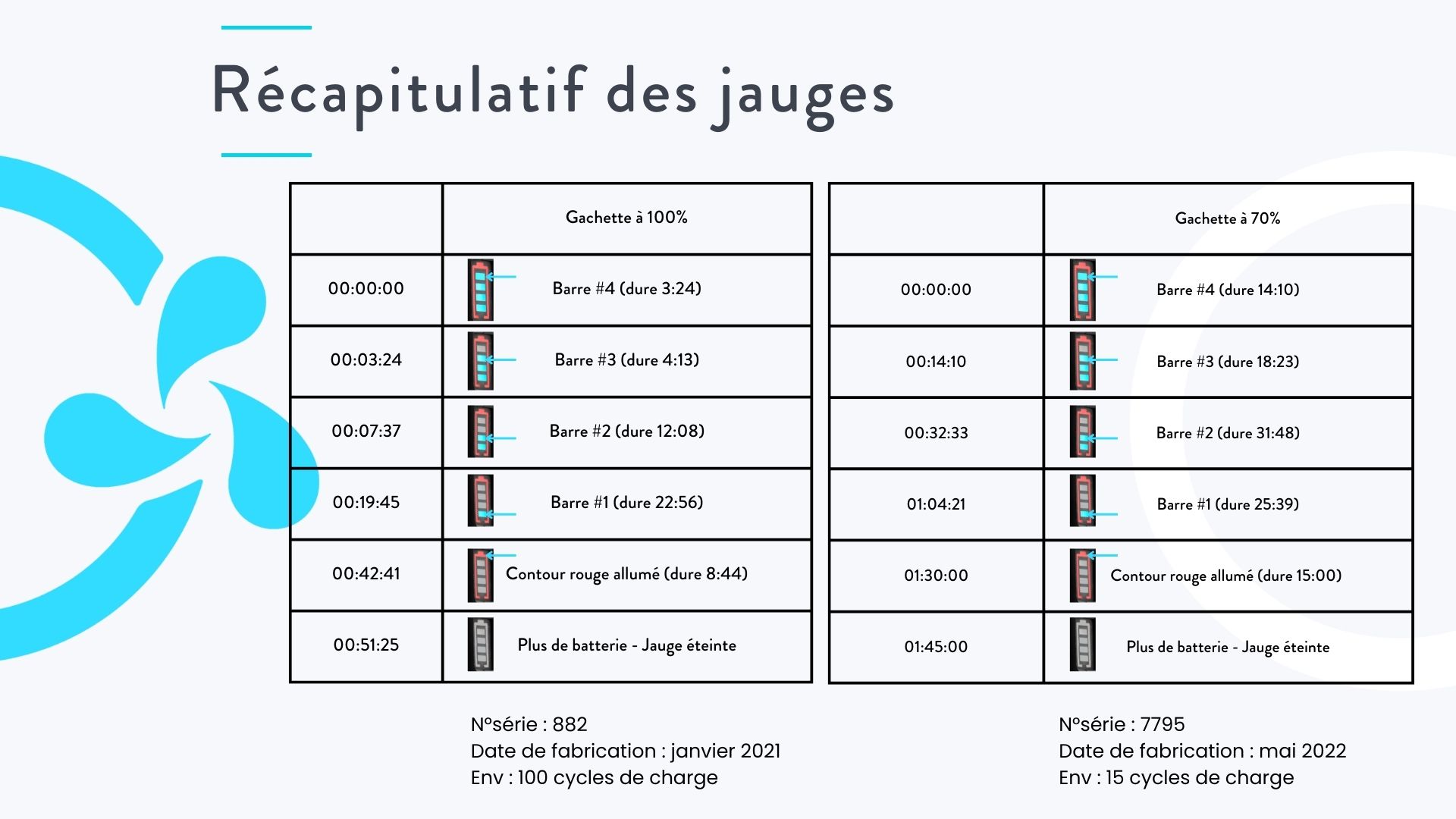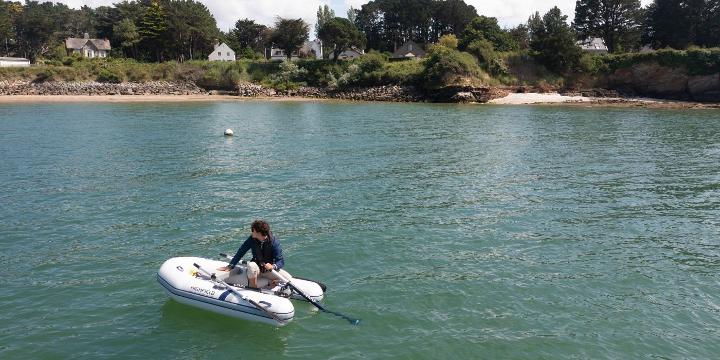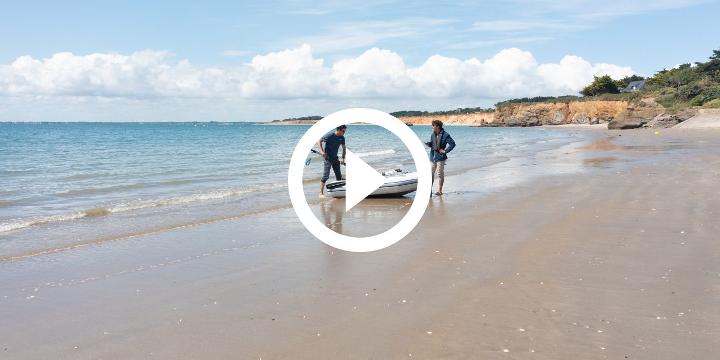For this test, we headed to the seaside resort of Quimiac on France’s
Atlantic coast, in the company of Thibaut and Carmin. The aim was to set
off from Quimiac beach and cross to Pénestin, testing two modes of
TEMO·450 use to see how the battery gauge evolves.
And off we go!☀️ ️
The idea behind the test
The idea was to take 2 identical dinghies and 2 TEMO·450s, with one
accelerating to 100% throttle and the other to 70% throttle, and to see how
the battery gauges behaved throughout the crossing.
Test conditions
The weather conditions for this test were ideal, with an average of around
10 knots of wind and calm seas. These conditions enabled an accurate
assessment of the motor’s range. 🌊
Test procedure
The test consisted of covering the distance between Quimiac and Pénestin.
Thibaut headed off with full throttle - at 100%, while Carmin opted for a
mid-range setting. Initially, Thibaut got a head start because of his higher
speed, but his battery ran down quicker than Carmin’s.
Carmin, on the other hand, maintained a moderate speed but kept his
range for longer.
Test results
The test results are impressive and unequivocal! Here’s an overview of the
main observations:
Dinghy 1 - Thibaut - 100% acceleration
Specifications of his TEMO·450
· Serial n°: 882
· Date of manufacture: January 2021
· Number of charging cycles: approximately 100
· Range (in time): 51 minutes
· Distance covered: 4.4 km
· Average speed: 3.7 km/h
After 52 minutes, Thibaut’s battery was completely drained. But Carmin’s
TEMO·450 was still showing 2 bars + the reserve!
Dinghy 2 - Carmin – 70% acceleration
Specifications of his TEMO·450
· Serial n°: 7795
· Date of manufacture: May 2022
· Number of charging cycles: approximately 15
· Range (in time): 1 hour 45 minutes
· Distance covered: 6.11 km
· Average speed: 3.3 km/h
Carmin caught up with Thibaut in just 6 minutes and was able to continue
on for a further 39 minutes! 🚀
A big well done to Carmin for his impressive TEMO·450 sailing record:
1 hour 45 minutes. Who knows, maybe we’ll soon see him entered in the
Guinness Book of Records! 🥇


Understanding the results
The results of this test highlight the nature of the lithium-ion batteries that
equip the TEMO·450. If you’d like to find out everything about our batteries
and become an expert on all the electrical concepts on the subject, we can explain everything in detail!
Getting back to the results: the discharge curve of lithium-ion batteries is
not linear. The first bars of the battery discharge more quickly. There is
then a more stable period of discharge, followed by a final drop.
When the motor is under load, the battery voltage drops, but recovers when
acceleration ceases. This explains why a bar on the gauge may reappear
from time to time.
The test report shows us that you don’t need to use the TEMO·450’s
maximum power to cover long distances and enjoy a pleasant trip at sea.
By judiciously adjusting your speed, you can extend your adventure... by
delaying the point when you run out of juice.
Now you know that once the first three blue bars on the gauge have
disappeared, you still have half an hour’s worth of power at your fingertips.
We hope this article has enlightened you on the subject of the range of
your TEMO·450.
Here’s our test report on video. 🎬
See you soon out on the water! ☀️⛵️
Dieser Artikel ist auf Englisch verfügbar
Este artículo está disponible en inglés

